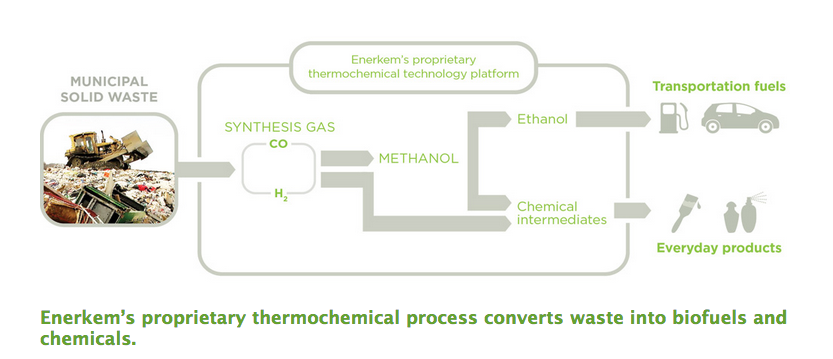Enerkem officially commissioned last week its first commercial biorefinery in Edmonton, Alberta, Canada, that will produce biofuels and chemicals using municipal waste. The facility, operated by Enerkem Alberta Biofuels, will have a capacity of up to 38 million liters/year initially producing biomethanol. A module converting the biomethanol into advanced ethanol will be added by the end of 2015.
Enerkem’s business model is reportedly to manufacture compact and standardized modular units. The company’s technology platform is a 4-step thermochemical process that consists of feedstock preparation, gasification, cleaning and conditioning of syngas and catalytic synthesis. The City of Edmonton will supply 100,000 dry metric tons/year of sorted municipal solid waste (MSW). The sorted MSW to be used is the ultimate residue after recycling and composting, which is saved from being landfilled. The biorefinery will help increase the City of Edmonton’s waste diversion rate from 60% to 90%.
Enerkem said its primary focus is the commercial production of cellulosic ethanol via methanol. The company can also sell the bio-methanol as an end-product or use it as a key intermediate to produce other renewable chemicals such as acrylic acid, n-propanol, and n-butanol. Its pilot facility in Sherbrooke (Quebec), and 1.3 mgpy demo scale facility in Westbury (Quebec) produce quantities of chemical grade syngas that are converted into methanol, and then chemical intermediates such as alcohols and acrylates, which Enerkem plans to soon commercialize.
The company said it is developing projects in North America, and are evaluating potential projects in the Middle East and China.
Here’s a nice video from Enerkem that explains the company’s technology from feedstock to production of methanol.





